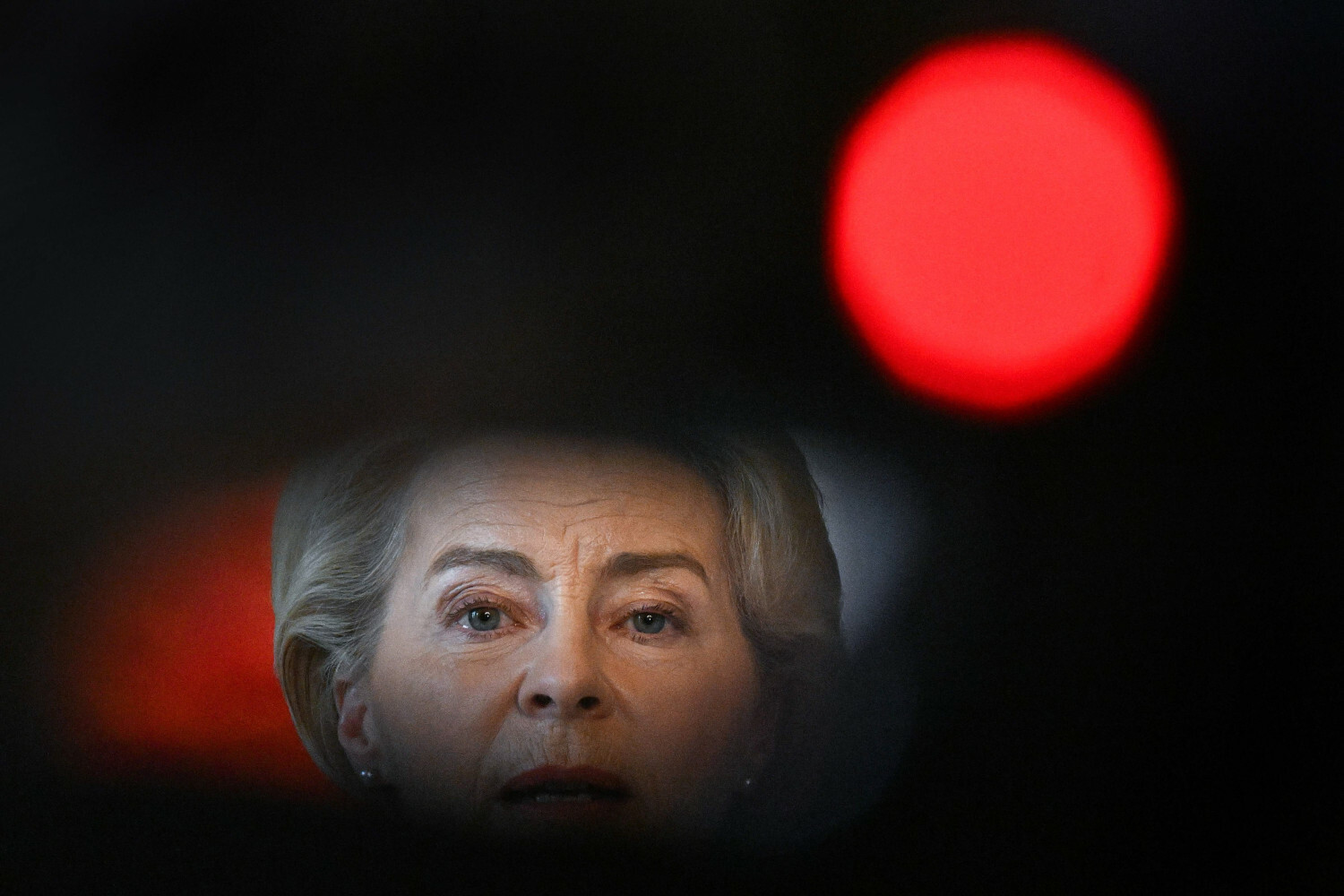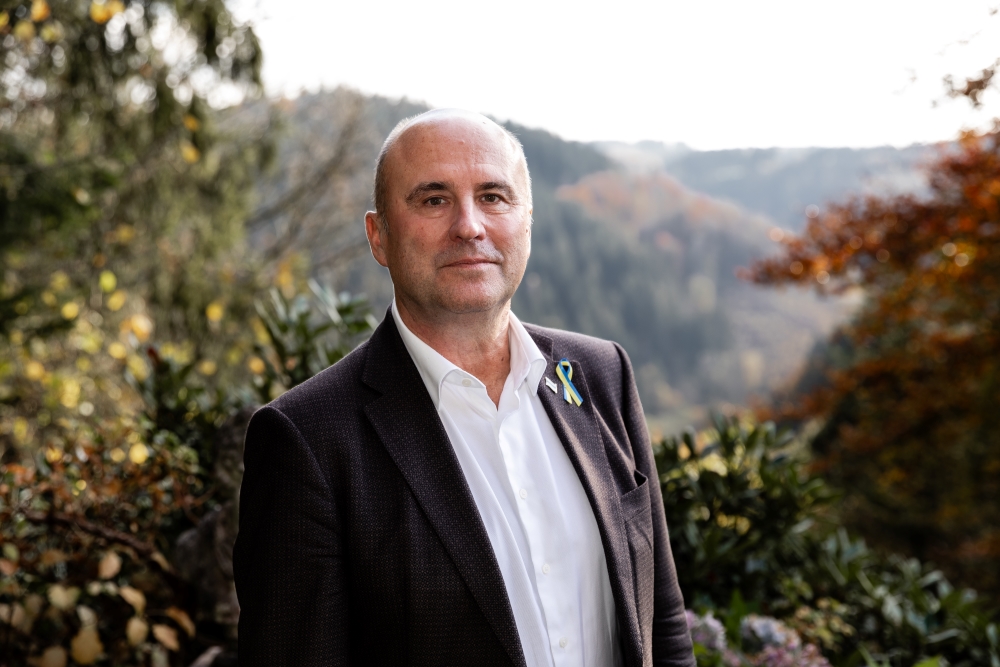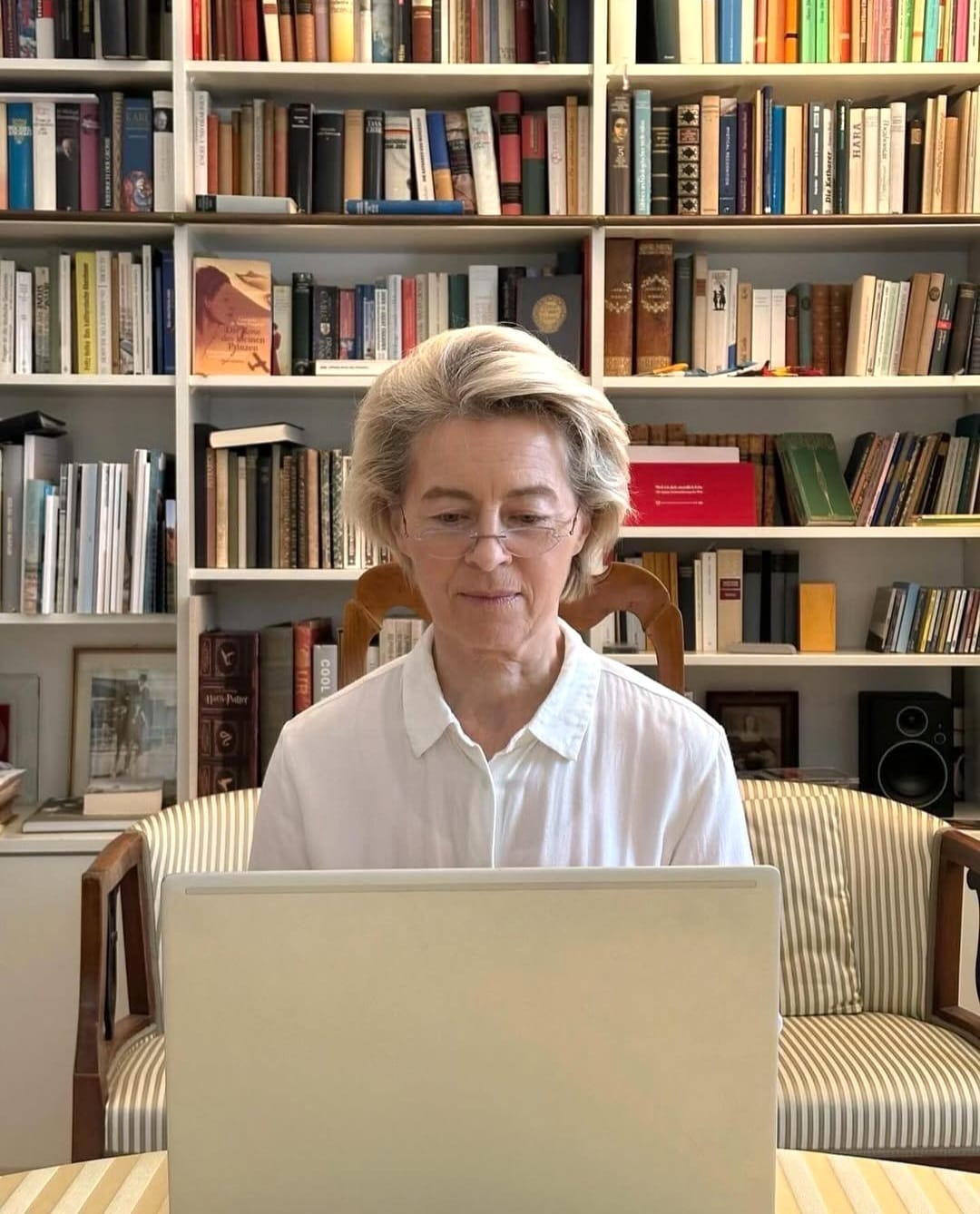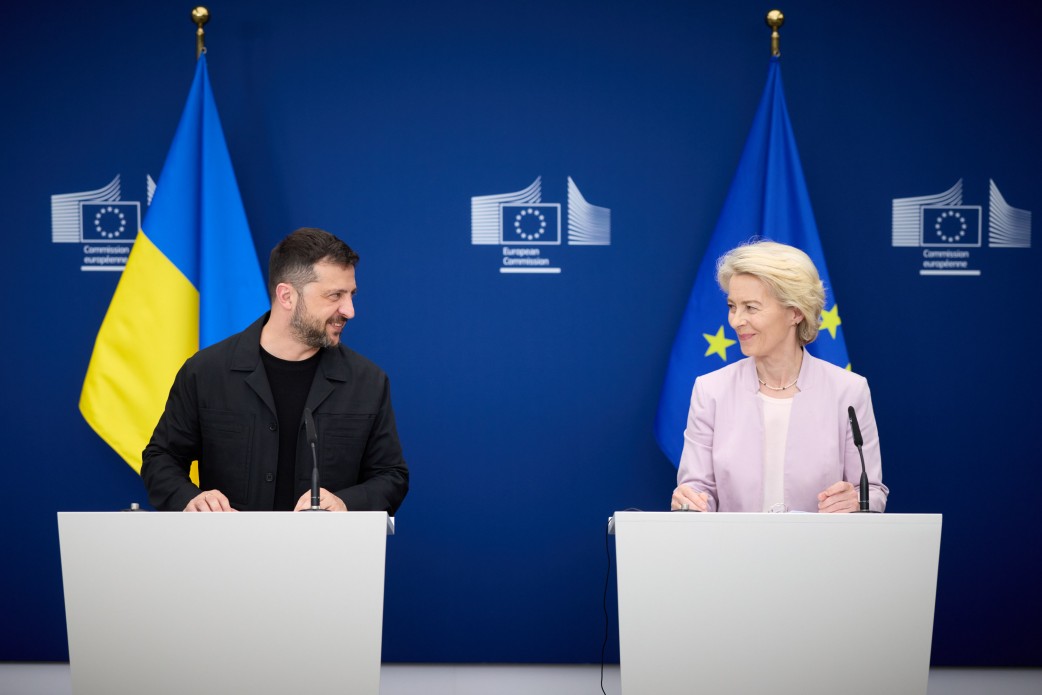Support Sestry
Even a small contribution to real journalism helps strengthen democracy. Join us, and together we will tell the world the inspiring stories of people fighting for freedom!
Negotiations in Riyadh, agreements on navigation in the Black Sea, and now the White House's attempts to achieve a truce by April 20th - all these steps create the illusion of diplomatic progress. But is this truly a step towards peace or another political manoeuvre?
Russia, despite its promises, continues to attack Ukraine’s energy infrastructure. The West, meanwhile, is considering easing sanctions against the Russian agricultural sector, even though Moscow has made no concessions. All this is happening against the backdrop of the Trump administration’s attempts to use the war for its own geopolitical game.
Does the White House have a clear strategy, or is it merely an attempt to secure a «success» before Easter? Is diplomacy turning into a tool for weakening sanctions that ultimately benefits the Kremlin? This is the subject of an exclusive interview with John Bolton - American Republican politician, diplomat and former National Security Advisor to Donald Trump (2018-2019).
The negotiation process
Maryna Stepanenko: Last week, we saw another round of negotiations in Riyadh. How would you assess their progress?
John Bolton: Certain agreements were reached regarding a ceasefire in the Black Sea in terms of the conditions under which commercial vessels may freely cross the Black Sea without being attacked. Commercial vessels must not be used for military purposes. And I believe we have generally returned to what was being discussed with Turkey back in 2022.
This may be progress, but I believe Russia is as interested in this as Ukraine, so that they can transport part of their agricultural products. I do not believe this necessarily guarantees progress in ceasing hostilities on land or towards a more comprehensive ceasefire, let alone a final settlement.

We witnessed Russia breaking its promise to stop strikes on Ukrainian energy infrastructure. Moreover, the attacks have not only continued but intensified. Now we have agreements aimed at ensuring safe navigation in the Black Sea and preventing the use of commercial vessels for military purposes. How can the United States guarantee that Russia will honour any agreements, given its history of violating international commitments?
I do not believe any guarantees exist. That is precisely why President Zelenskyy is so adamant about security guarantees - he understands Russia’s track record all too well.
An agreement can be reached on almost anything, but a Russian signature will not prevent a third invasion if Moscow decides to launch it
Many of these errors were made in 2014, ultimately leading to Russia’s second invasion. But the damage has been done, and the idea that the simple signing of a document ensures lasting peace and stability is fundamentally flawed - especially if the agreement leaves certain territories in Russian hands, making it inherently inadequate.
The United States announced its intention to support the resumption of Russian exports of agricultural products and fertilisers, including by lowering maritime insurance costs and improving access to ports and payment systems. Does this not contradict existing sanctions policy, particularly given the lack of Russian concessions toward achieving real peace?
Yes, I believe this reflects a relaxation of sanctions that provides Russia with more economic opportunities than it previously had, without any clear justification. Ukraine has been relatively successful in exporting its agricultural products from Odesa via the Dardanelles and the Bosphorus.
I am not certain it will truly benefit from this agreement. It offers certain assurances that vessels will not become targets, but ultimately, the real beneficiary of the Black Sea deal may very well be Russia.
Does this initiative not set a precedent whereby Moscow can use diplomatic negotiations as a tool to ease sanctions without altering its aggressive policies?
Russia's short-term diplomatic strategy is quite clear: to lift as many restrictions and as much pressure as possible while continuing to wage war, particularly as they believe the battlefield dynamics favour them.
Their primary objective is to ease the economic pressure they are facing. Although this pressure has not been as severe as it could have been, it is still significant enough to prompt them to seek relief
The real question is why the United States should provide such relief if Russia is not changing its behaviour. If they are not making meaningful concessions on a ceasefire or demonstrating genuine intent to end the war, then there is no justification for reducing pressure. Thus far, they have shown no signs of doing either.

Peace by Easter
The White House is seeking to broker a ceasefire agreement by April 20th, which this year coincides with Easter for both Catholics and Orthodox Christians. In your opinion, does the Trump administration have a specific strategy for this?
No, I do not believe there is a specific strategy. At best, Trump has moved from claiming he could resolve the war in a single day to postponing the timeline to April. By Easter, there may be a declaration of progress so that he can claim success, but I would be very surprised if a comprehensive ceasefire were achieved by then.
As I see it, the Kremlin does not consider a ceasefire to be in its interests. They are willing to humour Trump because they have already secured major concessions from him on long-term matters - no full restoration of Ukraine’s sovereignty and territorial integrity, no NATO membership and no NATO security guarantees. The Russians do not wish to risk losing these advantages. Therefore, while they may engage in negotiations, there is no real indication that they intend to alter their long-term objectives.
US Special Representative Steve Witkoff identified the greatest obstacle to resolving the war in Ukraine as the status of Crimea and the four regions of mainland Ukraine occupied by Russia, calling them the «elephant in the room» in peace negotiations. Are there realistic scenarios for reclaiming these territories? What diplomatic, military or economic instruments might support this aim?
I believe there are alternatives, but they will likely involve a protracted war. The key issue is whether Ukraine can continue to fight if the United States again suspends military assistance. That is the leverage Trump possesses.
As for Witkoff, I believe he is frequently influenced by Russian propaganda, and what you have just mentioned is a prime example of that
The four regions and Crimea were not some internal issue - they were the targets of unprovoked Russian aggression both in 2014 and 2022. If anything, they are Russia’s problem, not Ukraine’s.
US National Security Advisor Mike Waltz proposed the idea of beginning negotiations to freeze front lines «where they currently stand». What consequences might this have?
Well, I am very concerned. One of the main issues I have with a ceasefire is that if it is declared along the current lines of contact and negotiations begin in Geneva, Vienna or even Riyadh, that line of ceasefire could quickly become a de facto border.
The longer the negotiations drag on, the more Russia will work to consolidate its presence - establishing administrative structures, integrating the occupied territories into its governance system and treating them as though they are part of Russia.
Eventually, they will claim that returning these territories is impossible. That is why I believe a ceasefire in this context poses a serious risk for Ukraine
Trump and Putin - a reset in relations
Russia speaks frequently of resetting relations with the United States. Is this realistic? What are the long-term security implications for the United States and NATO of Trump's growing trust in Putin?
Putin manipulates Trump with remarkable ease, relying on his KGB training and clear understanding of Russia’s strategic interests. Unlike him, Trump appears not to recognise any significant American interests in this situation.
He is willing to abandon Ukraine’s position because it simply does not matter to him
Trump sees his relationship with Putin as personal, believing that if he gets along with the Russian leader, then US-Russian relations must be strong. But Putin does not view it that way. This overly simplistic and naive approach to foreign policy - where everything is reduced to personal dynamics - is precisely what Putin exploits to achieve his own goals at Ukraine’s expense.
Recently, Bild published a rather dramatic report suggesting that Russia might invade Lithuanian territory as early as this autumn. How realistic is this scenario?
From a military standpoint, Russia could attempt such an operation, perhaps to secure a corridor to the Kaliningrad exclave. However, I do not think it is likely. Putin is eyeing several other parts of the former Soviet Union - Central Asia, the Caucasus and Moldova - where he might see opportunities to reassert Russian control.
If a ceasefire were reached in Ukraine, I believe he would prioritise these regions over the far riskier step of a direct invasion of NATO territory
However, if Trump continues to weaken NATO, Putin may eventually decide the risk is worth taking.
How would a potential US retreat from active European engagement under Trump affect the regional balance of power, and could the EU compensate for this security vacuum?
I believe that a US withdrawal from NATO would be a catastrophic mistake for both the United States and Europe.
Even a significant weakening of the Alliance would have serious consequences. Putin understands this well
He knows Trump is only in office for four years, and he may see this as an opportunity. Encouraging Trump to take steps that weaken or even dismantle NATO could bring long-term benefits for Russia. But Putin also realises that this window will not last forever - he cannot count on more than four years. That is why he is trying to manipulate Trump, seeking through diplomacy and political influence to achieve what the Russian military has so far failed to accomplish in Ukraine.
Given the current tensions in relations between Canada and the US - something few could have predicted - do you believe Canada might strengthen its cooperation with Europe to form a NATO-like alliance without the United States, in order to enhance European security?
Canada may attempt to do so, but it would be a serious mistake - for Canada, for Europe and for all interested parties. If the United States withdraws from NATO or if Europe effectively pushes the United States out, it will be a major blunder. Despite the damage that Trump has already caused and may yet cause, we must take a long-term perspective. He has 46 months left in office, but security relations between Europe and the United States will endure for decades. During the Cold War, one of Russia’s key objectives was to divide the West, but it never succeeded.
We now risk doing this to ourselves. It is absolutely vital to avoid that
It will not be easy with Trump, but we must remain focused on the long-term objective.
Trump’s approval ratings and another scandal in his administration
Although Trump's approval rating is at a personal high, it still remains below the 50 per cent threshold, and a slight majority of voters (51 per cent) currently disapprove of his performance. How focused is the American public on the White House's policy regarding Ukraine? Is there potential for public pressure on Trump to continue military support for Kyiv?
I still believe that is possible. Trump's approval ratings are declining, but for years, people have noted that he has what is often referred to as a «high floor and low ceiling» - meaning his ratings tend to remain within a narrow range.
At the same time, although Trump is the newly elected president, he is also a «lame duck» president, as he cannot run for a third term. This means his approval ratings could fall even further during a second term than they did during the first.
It is unclear how events will unfold, but for now, his ratings are gradually declining. If tariff uncertainty continues to affect the economy, this trend may persist.
Mr Bolton, during Donald Trump's first term, you served as his National Security Advisor. What was your initial reaction when you learned about the scandal involving the addition of The Atlantic’s editor-in-chief Jeffrey Goldberg to a closed chat where the topic of a US military strike on Yemen was discussed? What does such a precedent signify?
It was truly shocking. I cannot imagine why anyone would even consider using an unsecured, non-government communication channel. Signal is unlikely to replace the highly secure network that the US government has spent vast sums to develop over many years. No one has offered a reasonable explanation for this - because, frankly, I do not believe one exists. This is a serious issue for the Trump administration. We shall have to wait and see whether it dissipates or not.
But one thing is clear - when high-ranking American officials act so recklessly, it only encourages America’s adversaries to intensify their espionage efforts

During our conversation, you emphasised that Trump’s time in office is limited to four years and that he will eventually leave the White House. Do you believe JD Vance might be a contender to succeed him in the future? What would such a figure in the White House mean for America, the world and global security?
It is far from certain that he will even receive the Republican nomination. His chances will largely depend on how popular the Trump administration is two to two-and-a-half years from now. If the economy slips into recession due to tariffs, it will damage anyone associated with Trump's presidency.
Meanwhile, although the Democratic Party has shown little momentum in the four months since the election, it may field a strong candidate in 2028. There are no guarantees that Vance will win the nomination or become president.
Historically, only two vice presidents have been elected president immediately after their vice-presidential terms: George H. W. Bush in 1988 and, before him, Martin Van Buren in the early 19th century. It is a rare occurrence. Some vice presidents have won presidential elections later in their careers, but direct successors to the president they served with are extremely rare.
This project is co-financed by the Polish-American Freedom Foundation under the «Support Ukraine» programme, implemented by the Education for Democracy Foundation




Ukrainian journalist. Worked at the Ukrainian edition of Radio France Internationale. She was the senior editor of the English-language project of the Multimedia Broadcasting Platform of Ukraine. She held the position of international news department columnist at the «Inter» TV channel. She has also been involved in documentary filmmaking in the past. Currently, she is developing a Ukrainian-language YouTube project as an editor and scriptwriter.

















